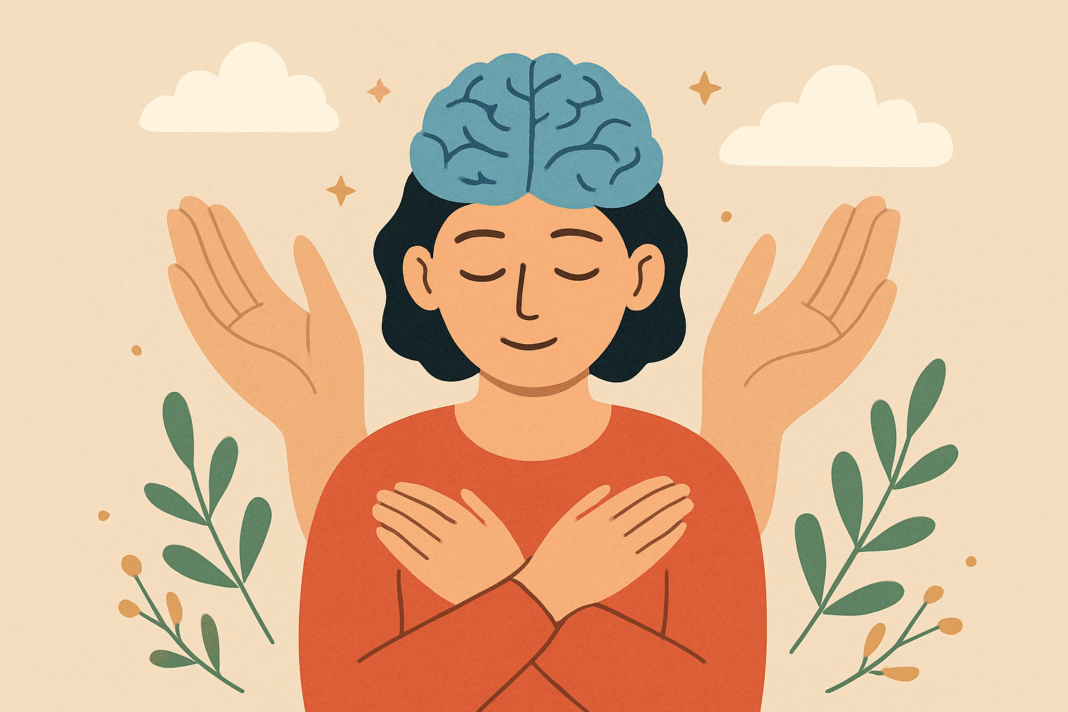More than 970 million people across the world live with some form of mental disorder. According to the World Health Organization, cases of anxiety and depression have risen by nearly 25 percent in the past few years.
Mental health problems are no longer a hidden issue. They affect families, workplaces, and entire communities. Our emotions, thoughts, and relationships are deeply connected to how mentally healthy we are. Healing the mind is just as important as caring for the body, yet many people still struggle in silence due to stigma or lack of support. Understanding how to heal mental health problems helps create a more balanced and compassionate world.
In the coming years, experts predict that mental health will become one of the top global priorities. With better awareness, modern therapy options, and technology making help easier to access, the future of mental wellness looks more hopeful than ever before.
Understanding Mental Health
Mental health is a part of our overall well-being. It affects how we think, feel, and act in daily life. It influences how we handle stress, build relationships, and make decisions. Just like physical health, our mental health needs attention, rest, and care to stay strong.
When someone faces mental or emotional struggles, it is not a sign of weakness. It simply means the mind needs care and balance. Recognizing this truth is the first important step toward healing.
Common Mental Health Challenges
Everyone experiences sadness, worry, or fear at times. But when these feelings become constant or start to interfere with everyday life, it may signal a deeper issue. Some of the most common mental health challenges include:
- Anxiety Disorders: Ongoing feelings of worry, fear, or nervousness.
- Depression: A long period of sadness, loss of interest, and low energy.
- Bipolar Disorder: Intense mood changes from extreme highs to deep lows.
- Post-Traumatic Stress Disorder (PTSD): Emotional pain after a stressful or tragic experience.
- Obsessive-Compulsive Disorder (OCD): Repetitive thoughts or actions that feel impossible to control.
Mental health problems can affect anyone, regardless of age, background, or country. Understanding the symptoms is the first step in finding the right kind of help.
Why Healing Takes Time
Healing mental health problems is a gradual process. It requires patience, understanding, and self-compassion. The human brain learns habits and emotions over years, so it also needs time to unlearn negative patterns and rebuild strength.
There is no single path to recovery. For some people, therapy works best. For others, lifestyle changes, social connections, or creative activities help restore balance. The goal is to find what supports your personal journey and stay consistent with it.
Everyday Steps Toward Healing
You don’t need to fix everything at once. Healing begins with small steps that bring comfort, clarity, and calmness.
1. Talk to Someone You Trust
Sharing your thoughts and emotions helps you release pressure. Speak to a friend, family member, or therapist. Being heard without judgment can be deeply healing.
2. Keep Your Body Active
Exercise is a natural mood booster. It increases endorphins, which help you feel more positive. Even simple activities like walking, dancing, or stretching can improve your mental state.
3. Rest and Eat Well
A healthy mind needs good fuel and enough rest. Sleep at least seven hours each night. Eat foods rich in vitamins, proteins, and minerals. What you eat affects how you feel and think.
4. Take Breaks from Negative Input
Constant exposure to stressful news or social media can increase anxiety. Give your mind space to breathe. Spend time outdoors or do something relaxing that makes you happy.
5. Practice Mindfulness
Mindfulness means paying attention to the present moment. It helps you calm your thoughts and focus on what you can control. Simple practices like deep breathing or noticing your surroundings can bring peace.
6. Seek Professional Guidance
If you feel stuck or overwhelmed, professional help can make a big difference. Trained therapists can help you understand your emotions, manage stress, and regain control of your thoughts. Using mental health counseling services can guide you toward effective recovery strategies that suit your personal needs.
The Role of Therapy and Counseling
Therapy is not only for those in crisis. It is a safe space where you can talk, understand yourself better, and find solutions. A therapist helps you uncover patterns of thought that cause distress and teaches you healthier ways to handle them.
Counseling provides emotional support and helps you set realistic goals for your mental well-being. Many people who attend regular sessions notice better sleep, higher confidence, and improved relationships. Whether in-person or online, therapy can be a life-changing step toward long-term healing.
The Importance of Social Support
Healing is easier when you are not alone. A strong support system helps you stay motivated and hopeful. Surround yourself with people who encourage you, listen to you, and make you feel safe.
If someone you care about is struggling, reach out to them. A small message or a kind word can make them feel valued. Support is not about giving advice; it is about being present and understanding.
How Culture and Stigma Affect Healing
In many societies, people hesitate to talk about mental health because they fear being judged. This silence can make problems worse. But change is happening worldwide. Schools, workplaces, and media platforms are starting to promote open conversations about emotional wellness.
The more we normalize mental health discussions, the easier it becomes for people to seek help. Public education, community programs, and celebrity advocacy are helping to remove shame and build awareness.
Building a Healthy Routine
Structure and routine bring stability to life. A regular schedule helps the brain create patterns that support good mental health. Try waking up and sleeping at the same time each day. Plan meals and breaks. Include hobbies that bring you joy.
Balance is also key. Learn to say no when needed. Rest when your mind feels tired. Taking breaks is not a sign of laziness; it is a form of self-respect.
The Role of Gratitude and Kindness
Gratitude changes how the brain sees life. Instead of focusing on what is missing, it reminds you of what you already have. Writing down a few things you are thankful for each day can lift your mood and improve emotional strength.
Kindness works in the same way. Helping others, even in small ways, builds a sense of purpose. It connects you to something larger than yourself, which can reduce feelings of loneliness and stress.
Recognizing When You Need Urgent Help
Sometimes mental pain becomes too heavy to manage alone. If you ever feel hopeless, have thoughts of self-harm, or feel like life has lost meaning, reach out for help immediately. Contact local helplines, hospitals, or trusted people around you.
Crisis support lines and mental health professionals are trained to help during these moments. Asking for help is not weakness; it is courage. You deserve safety and care.
Healing Is a Lifelong Journey
Healing does not happen in a straight line. There will be good days and difficult days. Some steps may feel slow, but each one still moves you forward. Recovery is not about perfection but about progress.
If you experience a setback, do not give up. Every effort counts, even on the hardest days. The goal is not to erase pain completely but to build resilience and learn how to handle life’s challenges with strength.
How Technology Supports Mental Health
Digital tools have changed the way people care for their mental health. Therapy apps, online support groups, and virtual counseling sessions make help more accessible than ever before. People in remote areas can now connect with licensed therapists through their phones or computers.
Technology also provides new ways to track emotions, set goals, and learn coping skills. While it cannot replace human connection, it offers valuable support for those seeking flexibility and privacy.
Global Efforts Toward Mental Wellness
Governments, schools, and companies around the world are recognizing mental health as a global priority. Many workplaces now include wellness programs and counseling options for employees. Schools teach students about emotional intelligence and coping strategies from an early age.
The World Health Organization continues to encourage all nations to invest in mental health services, train professionals, and make care affordable. The more these efforts grow, the closer we come to a world that treats mental health with the same importance as physical health.
Future of Mental Health Care
The future of mental health care looks hopeful. Experts believe that within the next decade, therapy will become more accessible and personalized. Artificial intelligence will help detect early signs of emotional distress, while community centers will make support available in every neighborhood.
More workplaces will create safe environments where people can speak openly about mental strain without fear of losing jobs or respect. Schools will emphasize emotional education as much as academic learning. The next generation may grow up seeing therapy as a normal part of healthy living.
Final Thoughts
Healing mental health problems is not about rushing or fixing yourself overnight. It is about understanding your emotions, learning healthier ways to cope, and building a life that supports peace of mind.
Every small effort matters. Talking to a friend, taking a walk, writing your thoughts, or asking for professional help are all steps toward healing.
Remember, you are not alone. Millions of people around the world are walking the same path. Healing takes time, but it is always possible. You have the ability to grow, recover, and create a life filled with meaning and calm.
If you ever feel unsure where to start, begin with kindness toward yourself. That is where real healing begins.



